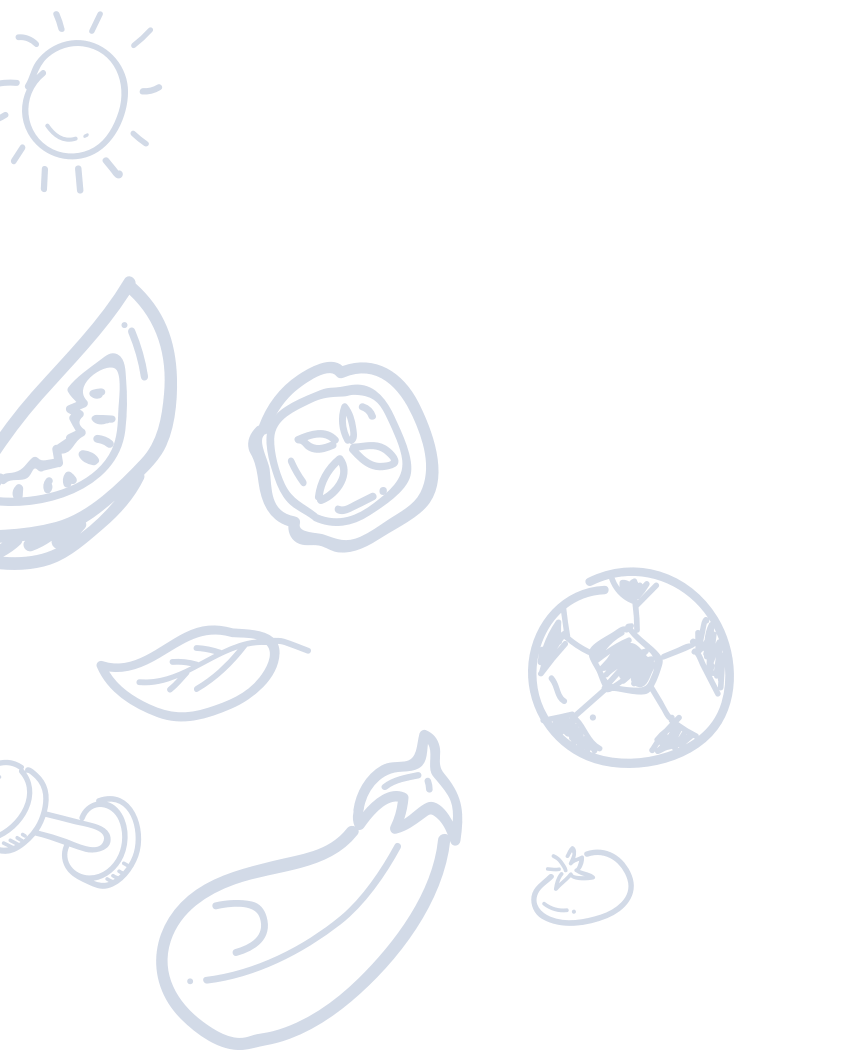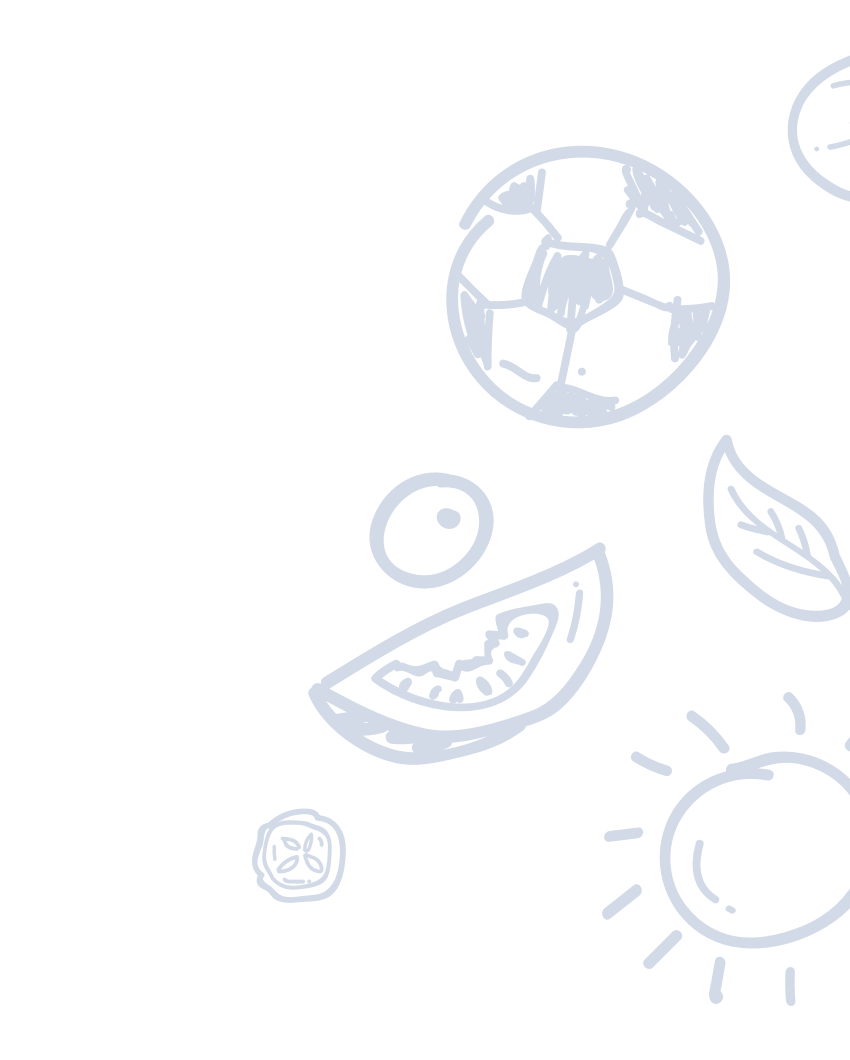Eating sustainably can mean different things to everyone. Hear from our friend Hope @localplanteater to learn her tips to help reduce food waste and eat in a sustainable way that is good for both the body and the earth!
Environmentalist, or not, you too can make a meaningful difference every single day to the planet we live on. Your contribution is needed and wanted. You don’t have to wait just until Earth Day to do something beneficial. Small habits can be formed throughout your day-to-day life to help make changes all year long. It’s the little things that add up – here are a few tips and several ways to help you eat sustainably while meeting your nutritional needs, all while benefiting the health of the planet by limiting waste.
Eat more plants, nuts, & seeds –
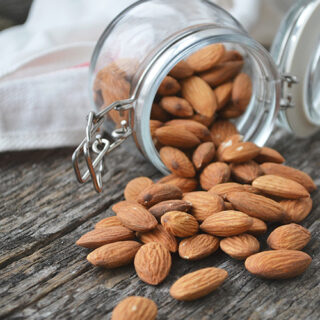
Eating more plants is better for the environment. It costs less and takes less of a toll on the environment as a whole, due to reduced emissions, animal farming, etc. Food is responsible for just around 30% of greenhouse gas emissions globally, with the prediction to continue to increase.
A diet rich in plant-based items such as produce, beans, nuts, and seeds, generally uses less land, water, fertilizer, and energy than a diet high in animal products such as meat and cheese. Interestingly enough, plant proteins require about 100 times less water than producing animal proteins! Write out some of your favorite meals to see how you can incorporate more fruits, and vegetables while substituting an animal protein for a plant-based option such as tofu, black beans, chickpeas, or tempeh.
Eat and shop mindfully –
More times than not, we go to the store to stock up on items that we then come home to realize we already had three of those on hand…we then have a lot of items that are expired and have gone bad – which leads to waste. Eating mindfully first comes from ensuring that we are shopping mindfully as well.
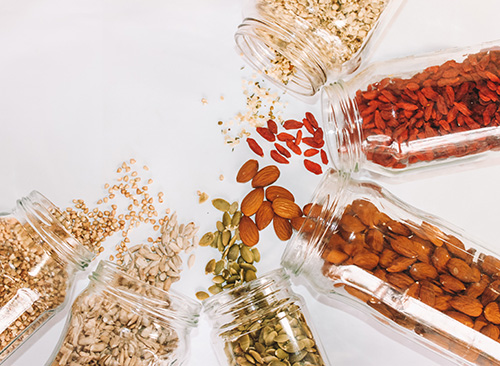
One of the main reasons why I like to choose greenhouse grown produce is that it is grown in a sustainable manner and uses less of a footprint because it grows up! It also means that your favorite fruits and veggies are available all year round so you can plan ahead and rely on the quality of these ingredients.
A great tip is to plan your meals for the week ahead and check your fridge and cupboards to see what items you need to put each dish together. Write down each meal you are planning to make, with exactly what ingredients you need. The items you are missing, purchase those, while also thinking of other dishes during the week you could make with those purchased items.
Also, think about what you could buy in bulk. By shopping in the bulk section of a grocery store, you can reduce excessive packaging waste and save the energy and resources used to make that packaging! Ensure you bring your reusable jars and washable bags for the produce and bulk sections.
Get cooking at home –
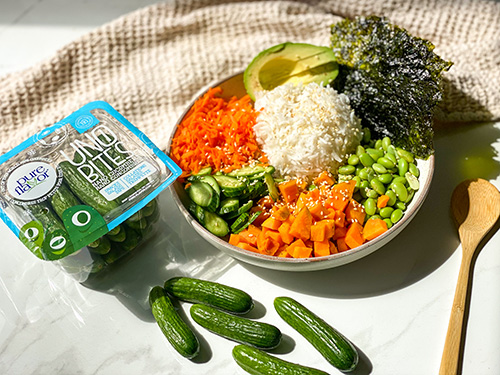
Making your own food at home is a great way to practice sustainability, as well as limiting waste. Making your own meals, condiments, and staple items can be lighter on your wallet as well. Rather than purchasing a $12 salad daily for your lunch, you can purchase several different items at the store for a little bit more, while having 5-6 lunches for you.
One of my favorite go-to recipes is this Cucumber Edamame Sushi Bowl! It’s a vegan dish made with greenhouse grown Uno Bites™ Nano Cucumbers, avocados, carrots, sweet potatoes, rice, and a sesame sriracha sauce. Everything can be prepped ahead and stored in the fridge so that you can easily pull dinner together when hunger strikes and avoid the costly take-out counter.
Get creative with food scraps –
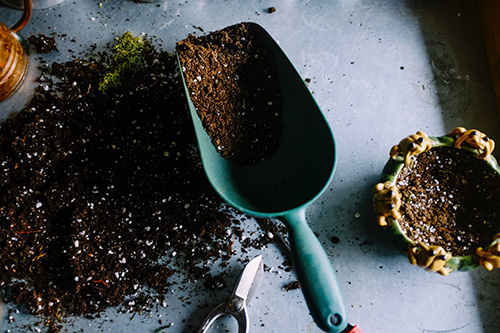
I have been on a plant-based diet for the last five years now. One of the things I have learned is that, when consuming more plants, you will have a lot more food scraps. Those food scraps can be used in several different ways to create other dishes and meals. The majority, if not all food scraps on a plant-based diet can be used for composting, gardening hacks, etc.
You can even save all of the scraps in a container in the freezer to make a soup broth with leftover vegetable skins and stems.
The food you eat and shop for has an impact on your health and the environment. So if you are trying to make a change, just remember these few points and tips when heading out to the grocery store, cooking, and enjoying a meal. We can only do so much on our own, but when we come together, that’s when big changes are made and the possibilities are endless.
~ Hope

